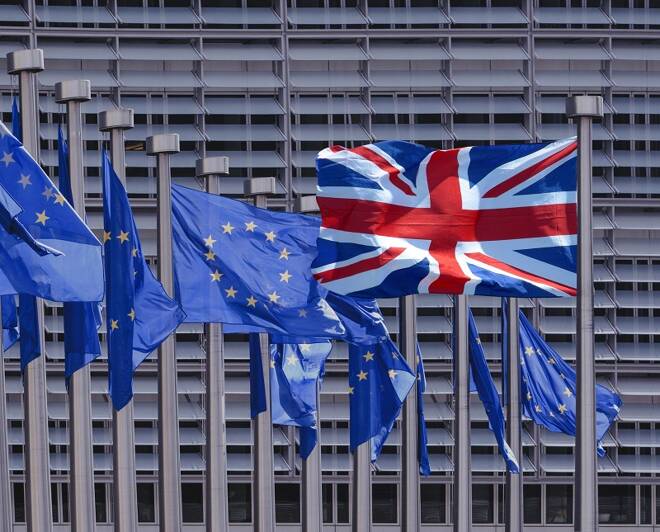Advertisement
Advertisement
The EU Election Results and a Divided Europe
By:
The Grand Coalition lose ground, but the Populists fail to make a mark. For the UK, the results were as expected and leave Britain divided.
The Results
The EU Parliamentary results failed to deliver any major shocks, with the projections reflecting a divided Europe.
According to reports from the weekend, voter turnout was at its highest in over 20-years at just over 50%.
While expectations had been for a material shift in the Establishment’s position in Brussels, votes delivered mixed results.
The EPP, won the most seats with 180, according to projections. The S&D and ALDE&R came in 2nd and 3rd with 152 and 105 seats respectively.
While the EPP came out in front, the center-right European People’s Party (EPP) and center-left Progressive Alliance of Socialists and Democrats (S&D) lost ground this week.
The Alliance of Liberals and Democrats for Europe (ALDE) made ground, as did the Greens and Euroskeptic parties.
As Euroskeptic parties, liberals and the Greens ate into the Establishment’s hold, the EPP – S&D coalition was also prised apart.
It wasn’t a night of celebration for the EU’s populists, however. Populists were only victorious in France, Italy, and Hungary.
For the UK, the results were largely in line with the polls in the run-up to Thursday’s vote.
The Brexit Party stole the show, taking 31.7% of the UK vote. The Lib Dems came in 2nd with 18.6%.
While the Labour Party managed to hold off the Green Party, with 14.1%, the Tories came in a dismal 5th with just 8.7% of the vote. That’s just 3 seats in the EU Parliament for the British Government.
So, when it comes down to Britain’s stance on Brexit, the latest EU election projections continue to leave the nation divided.
After almost 3-years of Brexit chatter, the breakdown of the percentage of votes favoring pro-Brexit and pro-Remain parties were evenly split, each with 35% of the vote.
That’s certainly not a resounding victory for the Pro-Brexiteers, while also giving little justification for a 2nd EU Referendum…
The Day Ahead
With the UK on holiday today, there will be no parliamentary session to allow the opposition party to respond to the Tory Party’s woeful performance.
While we can expect some chatter on the news wires, the dust will need to settle to see what’s next.
The Labour Party will need to reassess its position on Brexit before attempting to force a General Election. With a country divided on the issue, the division suggests that a General Election could deliver an even more fragmented UK Parliament.
Such fragmentation would certainly not help the cause of the incoming British PM. The fragmentation could also raise the prospects of a no-deal departure.
What Lies Ahead
As the dust settles from the EU Parliamentary election results and Theresa May prepares to step aside, the near-term focus will likely be on who will take over as British PM.
A pro-Brexiteer will also raise the prospects of a no-deal Brexit, but could also bring the Tory Party together. The Tories will need to now reflect on the results of the local elections and EU election. Division in the ranks has seen support collapse. Brexit has ultimately led to the Tory Party to the point where they may not even be called to form a coalition government.
For the Pound
The latest projections and vote counts had a relatively muted impact on the Pound. There were few surprises, with the Brexit Party taking victory. A lack of clear support for Brexit was also a middle ground for the Pound. This does raise questions over the possible outcome of a 2nd Referendum.
At the time of writing, the Pound was up by 0.13% to $1.27274.
About the Author
Bob Masonauthor
With over 28 years of experience in the financial industry, Bob has worked with various global rating agencies and multinational banks. Currently he is covering currencies, commodities, alternative asset classes and global equities, focusing mostly on European and Asian markets.
Advertisement
